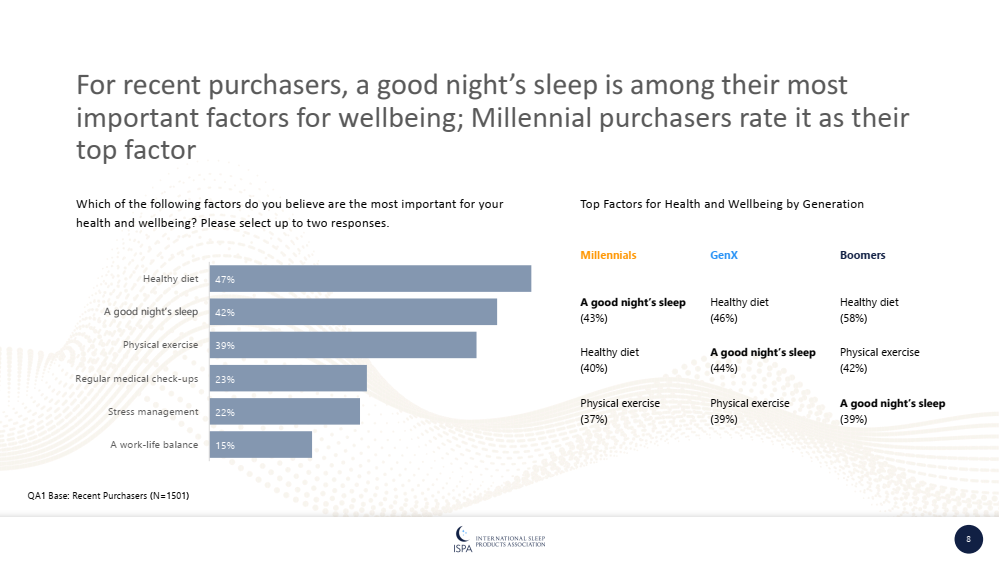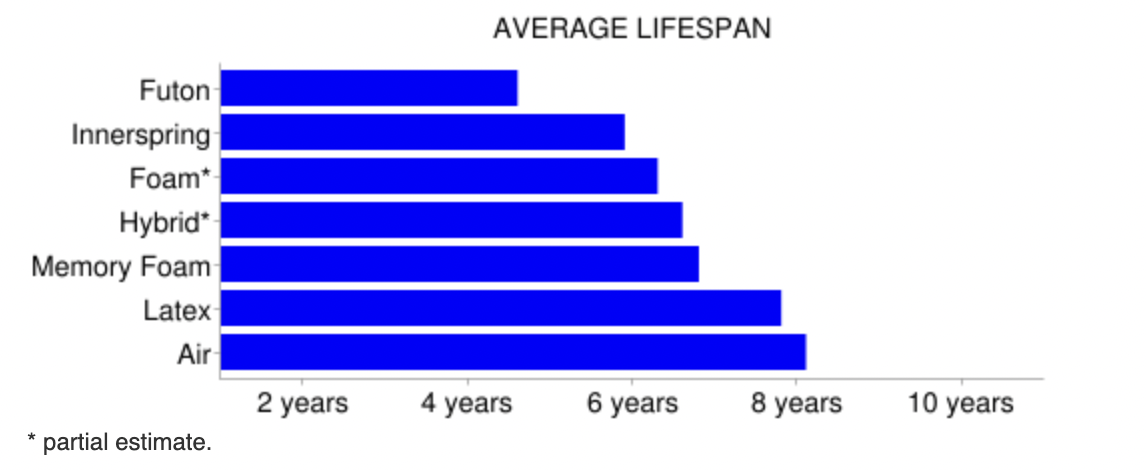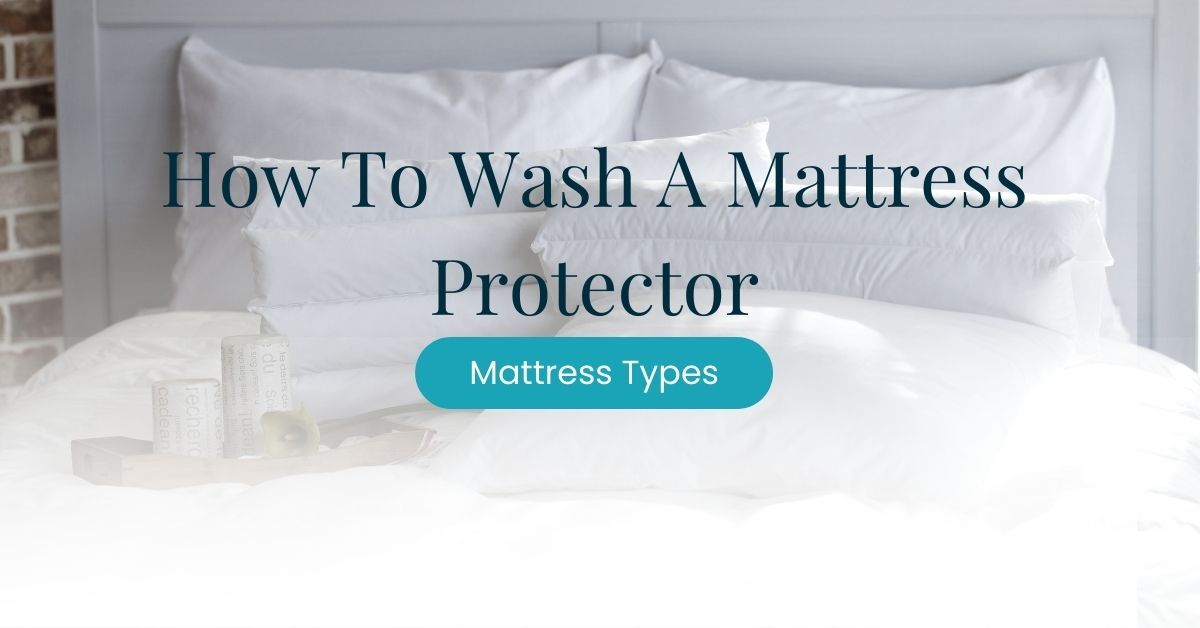Has it been a while since you bought your mattress and are looking to get a new one? Maybe you want to know if you got the most out of your current one or how long your new one should last?
Even the most expensive mattress will degrade its quality over time. But which mattress types last longest and get you the most bang for you buck? And, which ones degrade quicker than other types?
A good quality mattress will dictate whether you will have a good night’s sleep, affecting a person’s overall health and wellbeing. In a 2020 consumer report by Better Sleep Council and International Sleep Products Association, millennials rate “a good night’s sleep” as the most important factor in overall health and wellbeing.

This blog will discuss how long different types of mattresses last, factors influencing a mattress’ lifespan, and signs to check if you need a new mattress already.
How Long Does a Mattress Last?
Most mattresses have an average lifespan of 7 years. But different types of mattresses have different lifespans.
Based on more than 25,500 mattress owners’ experience, air and latex mattresses last the longest at about 8 years of lifespan.
On the other hand, futon mattresses last the shortest.

How Long Do Pillow Top Mattresses Last?
A pillow-top mattress typically lasts around six to eight years. The unique aspect that dictates its lifespan is the pillow-like layer at the top, which can break down and become lumpy over time.
This comfort layer is the main factor affecting its durability, as well as the innerspring structure of the mattress.
How Long Do Hybrid Mattresses Last?
Typical hybrid mattresses last between seven and ten years. Some models last even longer than ten years, while some low-quality ones with less foam and spring support last shorter than seven years.
How Long Should An Innerspring Mattress Last?
Innerspring mattresses usually last for seven years—more or less. It depends on a variety of factors; the most important is how it’s cared for and maintained. Innersprings are pretty durable and reliable, so you can count on them.
How Long Do Pocket Sprung Mattresses Last?
Pocket sprung mattresses typically last 8-10 years, especially for premium models. While some standard models may only last for 6-7 years. Some factors determine whether the lifespan of your mattress will be short or long, namely usage habits, maintenance and care routine and mattress build quality
Why do the air mattress and latex mattress types last the longest?
So how long do latex mattresses last? And why do they last so long?
- An air mattress is made up of latex and filled with air for the structure. The only damages that may occur are holes or lacerations which can be fixed easily.
- Latex in a mattress is made up of natural materials contributing to its durability. Because of its compact structure, latex mattresses are naturally resist mould and dust mites.
Following the study of more than 25,500 mattress owners, we can observe that the average lifespan is aligned with its price. The more you pay for your mattress, the longer it’s lifespan.
Mattress Type | Average Lifespan | Price (based on average model) |
Futon mattress | 5 years | Under £400 |
Innerspring mattress | 6 years | £400 to £800 |
Foam mattress | 6 years | £400 to £800 |
Hybrid mattress | 7 years | More than £1600 |
Memory foam mattress | 7 years | £800 to £1600 |
Latex mattress | 8 years | £800 to £1600 |
Air mattress | 8 years | More than £1600 |
| Pillow Top Mattress | 3-8 years | £500 to £800 |
5 Factors Influencing Mattress Lifespan
Now that we know how long different types of mattresses usually last, that doesn’t mean you can reach that period.
- Can a mattress last 10 years? Even if the average lifespan is 7 years, it can last 10 years if the mattress is properly taken care of.
- Can a mattress last 7 years? Even if the warranty period is 10 years, it may not last 7 years if the mattress is heavily used.
Different factors influence the lifespan of a mattress, and these include:
1. Mattress quality
When we buy a mattress, the price would most of the time be dependent on the quality of the mattress. For example, based on what has been discussed, a futon mattress cost is pretty cheap but they wear out the fastest.
This also applies to the different densities of a foam mattress. The higher the density is, the more expensive it is, and the more durable it is. A higher density mattress can resist weights and compressions applied on the mattress.
On the other hand, lower density mattresses would tend to sag over time because of compressions.
2. Mattress Type
As discussed, air bed and latex mattresses last the longest while futon beds last the shortest. This is due to the materials they make and the manner of use for each type.
Check out:
- how long does a memory foam mattress last
- how long does a latex mattress last
- how long does a tempur pedic mattress last
3. Weight of Sleeper
For example, mattress owners weighing more than 100kg will need to replace their mattresses more frequently due to the heavy stress exerted on them. On the other hand, lightweight sleepers will not impose heavy stress on the mattress.
4. Frequency of use
Whether you’re the type to stay in bed all day long or use the bed on weekends will affect if your mattress will sag or lose its quality early on.
5. care and cleaning
If a mattress is properly taken care of, meaning
- Cleaned regularly
- Changed beddings regularly
- Vacuum cleaned regularly
- Has proper ventilation
- Has an appropriate bed frame
- Not jumped on or subjected to heavy wear and tear
It would most probably last beyond its warranty period. But if it’s the opposite, dirt, stains, and damage will take a toll on your mattress.
How Can You Tell if You Need a New Mattress?
How often a mattress should be replaced is not just dependent on the typical lifespan of a mattress or the warranty period of a mattress.
It should depend on the user’s comfortability. A 2020 consumer report shows that most mattress buyers started shopping for new mattresses because of issues with their old ones. The most common issues that triggered buyers to look for the best mattress they could include:
- previous mattress being too old
- previous mattress not providing a good night’s sleep
- previous mattress sagging

So, when should you change your mattress? How can you tell if it’s time to say goodbye? Aside from the age of your mattress, being more than 7 years of age, these are some of the signs you should look out for:
8 Reasons Your Mattress Has Reached The End Of It’s Life
1. You are not sleeping well.
If you’re not sleeping well, this can affect your overall health. Short-term sleep deprivation can impair judgment, mood, and cognitive performance.
On the other hand, chronic sleep deprivation can lead to obesity, diabetes, cardiovascular disease, and even premature death.
2. sleep Is better in other places
If you’re sleeping better on other beds or places like hotels, couches, and other beds, it may mean your mattress is the cause of your sleeping problems.
3. Sagging Mattress Resulting in Morning pains
A sagging mattress can cause back pain, making your spine misaligned when sleeping. You might think you can fix this, but how do you fix a sunken mattress? Well, you can try adding pads to the centre of the mattress, but this won’t be as comfortable as a new mattress.
4. You Wake Up with aches due to a Lumpy Mattress
If you only sleep on a particular area of the bed, it might create lumps on other parts of the bed because of uneven use. Your mattress might have developed lumps because of irregular rotation or flipping.
5. You sink too far into the bed
If you sink on the bed, it is not firm enough to give you the support you need. The materials of the mattress may have deteriorated already because of heavy use. For example, if you have children who are always jumping on the bed, this can cause damage to the spring.
6. allergies are bad
Dust and dirt like fur, hair, and dead skin are common allergens that can be found in your mattress. While regular cleaning can get rid of these on the surface, dust and dirt may have deeply infiltrated your mattress especially if it is old and not been taken care of for a long time.
7. visible mould
Mould can develop on your mattress in a moist and humid environment, especially if your bedroom is not properly ventilated. While you can clean moulds on the surface, if it has deeply developed on the core of your mattress, there’s nothing we can do.
8. Loads of bed bugs
Should you get a new mattress if you have bed bugs? Definitely, yes! Bed bugs can take time to get rid of. If you’re suffering from bed bugs, you can check this blog for guidance on getting rid of bed bugs on mattresses.
If you relate to one of the situations above, it’s time to get a new mattress. You can check out our guides to have a deeper knowledge of what types of mattresses are best for you.
4 Sources
- Mattress Shopper’s Buyer Journey. (2020, February). Retrieved from International Sleep Products Association:
https://www.sleepproducts.org/pdf/ISPA-BuyerJourney.pdf - Mattress Longevity / Lifespan Comparisons. (2017, April 7). Retrieved from Sleep Like the Dead:
https://www.sleeplikethedead.com/mattress-longevity.html - Know When to Give Your Old Mattress a Rest. (2019, September 17). Retrieved from The Better Sleep Council:
https://bettersleep.org/blog/the-right-time-to-find-a-new-mattress/ - Consequences of Insufficient Sleep. (n.d.). Retrieved from Division of Sleep Medicine at Harvard Medical School:
https://healthysleep.med.harvard.edu/healthy/matters/consequences





